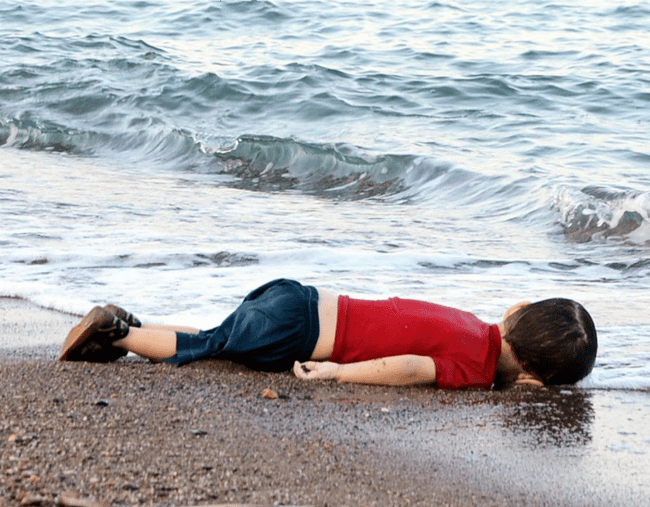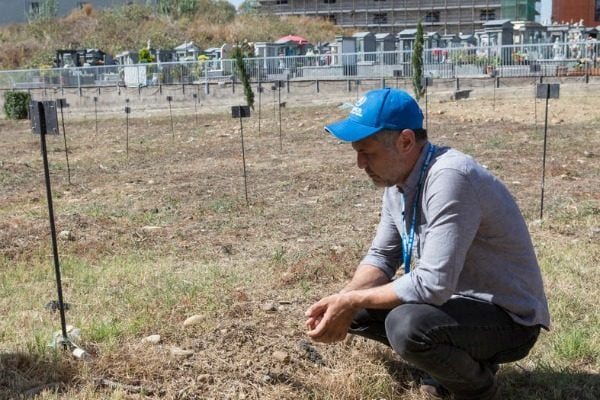
CONTENT WARNING: this post contains graphic images that may be distressing.
UNHCR Goodwill Ambassador Khaled Hosseini is the multi-award winning author of The Kite Runner and A Thousand Splendid Suns, which together have sold more than 38 million copies worldwide.
***
We mark the graves of our dead because of that most ancient and elemental of human quandaries: we may long for the eternal, but we live our days under the unrelenting shadow of impermanence. Every cemetery is a communal effort against the indignity of being forgotten, every epitaph ever hammered into stone a reprieve against the oblivion of death, a silent cri-de-coeur against the outrage of inconsequence:
Here is a life that once was, that once mattered. We remember. We honour.
It is a balmy June morning here in Catania on the eastern coast of Sicily, and I am visiting a small graveyard, joined by an Imam from a nearby mosque. Next door, a few yards away, sits another cemetery: clean, fenced-in grounds and tall, granite headstones, well-watered rows of neatly trimmed rosebushes, a few families paying their respects.
But over on this side of the fence, the dead lie nameless. No loving tributes chiselled into marble, no groundskeepers, no flowers. Here the graves are unmarked, neglected mounds, the grass withered, the lot blown through with weeds and trash. The Imam and I sidestep sun-warped orange-soda bottles, balled up cigarette packs, a pigeon carcass rotting in the sun, at the foot of a grave, a frenzy of bees swarming inside the open gore of its chest.
































































































